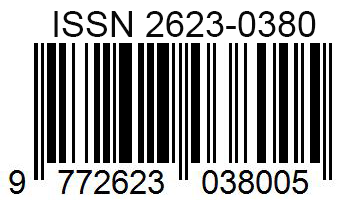Optimizing Learning: Adaptive Technology Integration in Indonesia's Education System
DOI:
https://doi.org/10.37640/jip.v16i2.2293Keywords:
Adaptive technology, optimizing learning, Indonesian educationAbstract
Adaptive technology in education offers an innovative solution to enhance learning quality by personalizing instructional materials according to students’ needs. This study aims to analyze the potential of adaptive technology in Indonesia’s education system and identify its implementation challenges. Using a literature review method, this research examines various studies on the application of adaptive technology in education, particularly within the "Merdeka Belajar" framework. The findings indicate that adaptive technology can enhance student engagement, facilitate data-driven learning, and assist teachers in accurately identifying student difficulties. However, major challenges in its implementation include limited infrastructure, gaps in digital literacy among educators, and cultural resistance to technology in education. To address these barriers, strategic measures such as strengthening digital infrastructure, implementing TPACK-based teacher training, and educating communities about the benefits of adaptive technology are necessary. With these recommendations, adaptive technology is expected to be effectively integrated into Indonesia’s education system, fostering more inclusive, flexible, and high-quality learning.
Downloads
References
Alfiyanto, A., Hidayati, F., & Ghazali, M. (2024). Integration of Adaptive Learning Technology in the Context of Islamic Education in Indonesia. ISCIS2024: International Seminar And Conference On Islamic Studies. https://jurnal.uinsu.ac.id/index.php/ISCIS/article/view/21907
Aulia, V., Hakim, L., & Sangka, K. B. (2023). Dampak Tpack Pada Pengembangan Profesionalisme Guru Dalam Praktik Integrasi Teknologi. Prosiding Simposium Nasional Multidisiplin (SinaMu), 4, 235. https://doi.org/10.31000/sinamu.v4i1.7894
Capuano, N., & Caballé, S. (2020). Adaptive Learning Technologies. AI Magazine, 41(2), 96–98. https://doi.org/10.1609/aimag.v41i2.5317
Chen, C.-H., Siu-Yung Jong, M., & Tsai, C.-C. (2022). A comparison of in-service teachers’ conceptions of barriers to mobile technology-integrated instruction and technology-integrated instruction. Australasian Journal of Educational Technology, 35–50. https://doi.org/10.14742/ajet.7299
Chen, H., Dou, Y., & Xiao, Y. (2022). Understanding the Role of Live Streamers in Live-Streaming E-Commerce. SSRN Electronic Journal. https://doi.org/10.2139/ssrn.4141864
Dito, S. B., & Pujiastuti, H. (2021). Dampak Revolusi Industri 4.0 Pada Sektor Pendidikan: Kajian Literatur Mengenai Digital Learning Pada Pendidikan Dasar dan Menengah. Jurnal Sains Dan Edukasi Sains, 4(2), 59–65. https://doi.org/10.24246/juses.v4i2p59-65
Fitria, T. N. (2024). Using an Institution Platform of E-Learning in English Language Teaching (ELT) Process at ITB AAS Indonesia. International Journal of Computer and Information System (IJCIS), 5(1), 22–36. https://doi.org/10.29040/ijcis.v5i1.150
Ghavifekr, S., & Rosdy, W. A. W. (2015). Teaching and learning with technology: Effectiveness of ICT integration in schools. International Journal of Research in Education and Science. https://doi.org/10.21890/ijres.23596
Gusteti, M. U., Rahmalina, W., Azmi, K., Mulyati, A., Wulandari, S., Hayati, R., & Fajriah, N. A. (2024). Mengungkap Potensi Self-Efficacy Melalui Analisis Literatur Dalam Pembelajaran Matematika. Dharmas Education Journal (DE_Journal), 5(1), 168–179. https://doi.org/10.56667/dejournal.v5i1.1214
Hamer, W., & Lely, L. N. (2020). The Role of SPADA as Instructional Media and Technologies to Utilize Learners’ Self-Regulated Learning. Journal of English Education Studies, 3(1), 18–28. https://doi.org/10.30653/005.202031.53
I-Ju Chen. (2020). Learning Style Preferences and the Level of L2 Achievement: A Case Study of EFL College Students. Journal of Literature and Art Studies, 10(11). https://doi.org/10.17265/2159-5836/2020.11.012
Jazuly, A., Yaum, L. A., Udhiyanasari, K. Y., & Kismawiyati, R. (2022). Innovation Of Adaptif Technology Based On Internet Of Things For Inclusive Student. Logic: Jurnal Rancang Bangun dan Teknologi, 22(2), 127-131. https://doi.org/10.31940/logic.v22i2.134-138
Jing, Y., Zhao, L., Zhu, K., Wang, H., Wang, C., & Xia, Q. (2023). Research Landscape of Adaptive Learning in Education: A Bibliometric Study on Research Publications from 2000 to 2022. Sustainability, 15(4), 3115. https://doi.org/10.3390/su15043115
Lu, P. (2019). Critical Thinking Attitude: An Exploration of a Critical Thinking Construct (p. 148). https://ttu-ir.tdl.org/handle/2346/85540?show=full
Maryani, L., Nur, J., Utami, S., Nurnaifah, I. I., & Farida. (2023). Strengthening School Management with Digital Education Technology to Improve the Quality of Educational Output. Indonesian Journal of Educational Research and Review, 6(2), 446–465. https://doi.org/10.23887/ijerr.v6i2.66039
Molenaar, I., & van Campen, C. K. (2016). Learning analytics in practice. Proceedings of the Sixth International Conference on Learning Analytics & Knowledge - LAK ’16, 538–539. https://doi.org/10.1145/2883851.2883892
Mustaghfiroh, S. (2020). Konsep “Merdeka Belajar” Perspektif Aliran Progresivisme John Dewey. Jurnal Studi Guru Dan Pembelajaran, 3(1), 141–147. https://doi.org/10.30605/jsgp.3.1.2020.248
Nazmi, R., Ardiyanto, J., Anshori, M. I., Siswanto, D. E., & Wirawan, R. (2023). Adaptive Learning in the Future of Educational Management Adapts to Student Needs. Al-Fikrah: Jurnal Manajemen Pendidikan, 11(2), 272. https://doi.org/10.31958/jaf.v11i2.10552
Peng, H., Ma, S., & Spector, J. M. (2019). Personalized adaptive learning: an emerging pedagogical approach enabled by a smart learning environment. Smart Learning Environments, 6(1), 9. https://doi.org/10.1186/s40561-019-0089-y
Putri, R. D. P., Martaningsih, S. T., Prabowo, M., & Rukiyati, R. (2023). Konsep merdeka belajar pada sekolah dasar ditinjau dari perspektif filsafat progresivisme. Jurnal Fundadikdas (Fundamental Pendidikan Dasar), 6(1), 01–12. https://doi.org/10.12928/fundadikdas.v6i1.7169
Rahiem, M. D. H. (2020). Technological Barriers and Challenges in the Use of ICT during the COVID-19 Emergency Remote Learning. Universal Journal of Educational Research, 8(11B), 6124–6133. https://doi.org/10.13189/ujer.2020.082248
Subroto, D. E., Supriandi, Wirawan, R., & Rukmana, A. Y. (2023). Implementasi Teknologi dalam Pembelajaran di Era Digital: Tantangan dan Peluang bagi Dunia Pendidikan di Indonesia. Jurnal Pendidikan West Science, 1(07), 473–480. https://doi.org/10.58812/jpdws.v1i07.542
Tosuntas, S. B., Cubukcu, Z., & Inci, T. (2019). A Holistic View to Barriers to Technology Integration in Education. Turkish Online Journal of Qualitative Inquiry, 349–371. https://doi.org/10.17569/tojqi.613969
Wantini, W., Suyatno, S., & Dinni, S. M. (2022). Implementation of Expressive Writing Therapy Through Writing Diary Coping Anxiety in Children Victims of Covid-19. Al-Hayat: Journal of Islamic Education, 6(1), 140. https://doi.org/10.35723/ajie.v6i1.237
Windiarti, I. S., Bahri, S., & Prabowo, A. (2023). Melangkah Maju dengan Teknologi Generative AI: Peningkatan Kompetensi Kepala Sekolah SMP di Kota Palangkaraya. Parta: Jurnal Pengabdian Kepada Masyarakat, 4(1), 46–52. https://doi.org/10.38043/parta.v4i1.4344
Downloads
Published
Issue
Section
License
Copyright (c) 2025 Rika Hasmayanti Agustina, Afif Alfiyanto, Suhendri Suhendri, Edy Wihardjo, Syatria Adymas Pranajaya

This work is licensed under a Creative Commons Attribution-ShareAlike 4.0 International License.
Authors agree that this article remains permanently open access under the terms of the Creative Commons Attribution-ShareAlike 4.0 International License





















